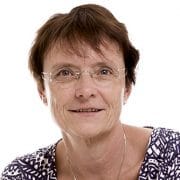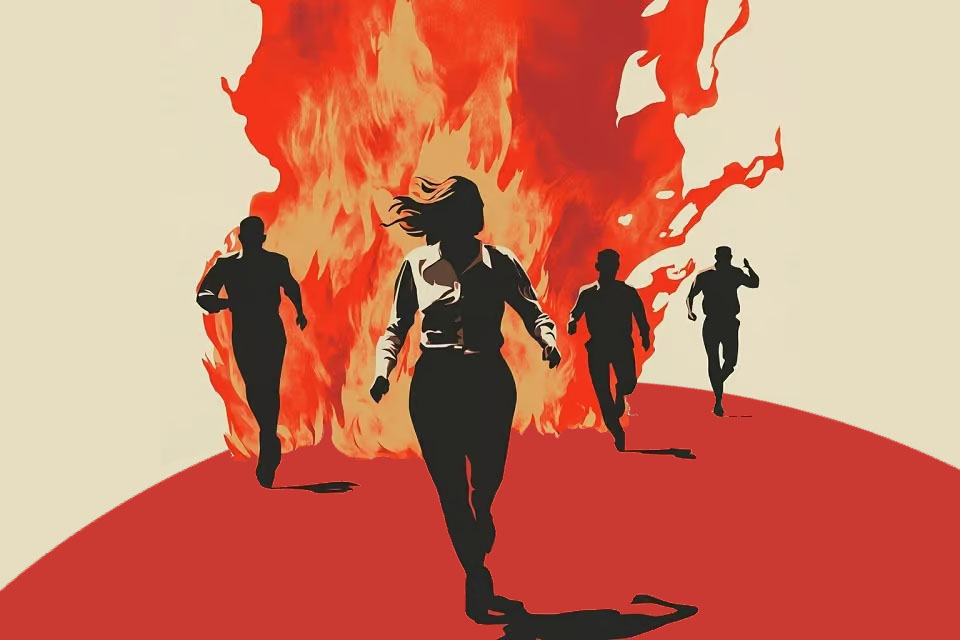Is the world getting more complex?
A few days ago I started reading the book “Alles könnte anders sein” by Harald Welzer and stumbled across the hypothesis right at the beginning that complexity does not increase at all. At first I was irritated, since I also believe that perceived complexity increases. Media and publications from various fields support this statement, it is quasi a constant in the perception of our environment. Globalisation, digitalisation, diversity, climate protection… So much influences our thinking and actions. And here comes Harald Welzer, who claims the opposite and justifies it – even taking into account the factors we perceive as increasing complexity. How can that be? In fact, the author refers to the blind spots we all know well, we perceive everything that points to increasing complexity, the other tends to be ignored.
I have been very preoccupied with the message of this book over the last few days. And also the question of what this actually means in terms of possible consequences. In this article I would like to present some considerations and my current opinion.
Complexity versus conformity
Anyone faced with a decision today is confronted with a multitude of relevant parameters, even without thinking intensively. Even simpler questions from the private sphere quickly raise fundamental questions about climate protection or social coexistence. How much more complex is it when it comes to professional decisions? Equality, demographic change, globality and constantly changing legal frameworks play a decisive role at first glance. At the same time, however, conformity has spread: political systems today almost all pursue an economic approach that can be described as “capitalistic” and follows the clear rules of profit maximisation or at least profit optimisation. Few large corporations determine essential parts of our lives, be it in the supply of food or information. In the EU, we have a single, common currency.
And just as, on the one hand, the number of parameters is increasing more and more, on the other hand, the pendulum is actually moving in the direction of a unification. In my experience, however, the focus of the debate on complexity is really only on the one pendulum swing.
Stagnant planability
The variety of parameters seems to influence planning negatively and something changes all the time. Some ask themselves the question “Why should we plan at all?” and align their lives entirely with the “here and now”, others react with even more planning and detailing up to over-information. Both are rather obstructive and blocking for creative decisions and actions, because depending on their characteristics they are reactive, hyperactive or overstraining. Current social phenomena, such as procrastination or direct ad hoc solutions with little thought-out consequences, are probably visible effects. Even the agility and its methods, which have recently been so popularly cited as “all remedies”, help only to a limited extent, in the end you “only” change the planning framework. My very personal impression is that we are scurrying like the famous hamster in the wheel. We haven’t really given up on the idea of mastering and controlling everything and, at the same time, generating as much output as possible – if necessary in shorter cycles – and probably haven’t even reflected appropriately on it.
Less visible and tending to slip out of our focus is the fact that in all this fundamental, system-relevant parameters freeze and – due to the amount of things we deal with under the catchword VUCA – are not even questioned or mentioned at all. Essential assumptions for planning thus play a decisive role “secretly” – i.e. implicitly and unmentioned, because they are self-evident: economic growth, of course, you don’t have to write them down as an expectation at all, is self-evident for commercial enterprises. Prosperity and consumer orientation are similar premises, especially in the private sphere. All this amounts to “much” and “more”. Every now and then, on the socio-political, economic or current climatic stage, somebody comes along who puts a question mark behind it, in everyday life, even in professional life, but we are not affected by it.
The excess of constant change is thus countered by a number of assumptions that can certainly be described as rigid, which we then take for granted – and similarly to jokes about old marriages – and act with without questioning, unconsciously and quasi automatically. This restricts options for decision-making and action.
Looking at the pendulum “Increasing and reducing complexity” from the point of view of Arnold Mindell’s consulting approach, such blind spots in the form of spirit roles unfold a powerful force. Not pronounced or consciously perceived, they block development.
Limits of models
We are probably all familiar with this: the desire for simplification slumbers within us. At the latest when we feel overburdened by too much, we like to look at problems monocausally and/or reduce complexity. Such forms of simplification give us the feeling of being in control, (apparent) security is spreading, things can go on as before. It is to be recognized that this desire and its consequent (cognitive) implementation have laid essential foundations and models for our current social prosperity. This makes them so popular and unfortunately also prevents the question of whether they still represent the decisive aspects of reality and are thus suitable as a model. Models are always a (temporary) reflection of reality, a simplification that helps us. But they have limits and at some point they don’t fit (anymore), development is stopped – just think of the earth as a disk …
Alternatively we make many things so complicated (there it is again the pendulum) that we better do nothing at all or believe we can’t do anything. The principle that we complicate and fade out at the same time is not recognized. From a systemic point of view, taboos arise from something that was once important, often even decisive for reality and life, but is now lived on empty of meaning and excludes those who question it. Such a model becomes really difficult when it blocks necessary social or personal change, and this seems to me to be the case with regard to growth and consumerism. Which one of us – and I include myself in this – likes to voluntarily give up his false security, which lives in the familiar, and can imagine a life within a framework which is appropriate to the resources of our planet or is not based on too cheap work in distant countries? If, on the other hand, young people take to the streets, they discuss skipping school instead of the problem itself.
What could be different?
Simplification and reduction are a natural reaction to the unmanageable diversity – including biological diversity. At the latest, however, with powerful spiritual roles and tabooing it becomes inappropriate or even dangerous (in the sense of endangering development). Unification and rigid conformity call diversity into question, but diversity is a law of nature. And nature lives by adaptation to new conditions, there is testing and adaptation – solidifying conformity tries to prevent this. A look back at evolution and the history of mankind gives a hint of (non-)success.
The assumption that on a “finite planet”, as Harald Welzer so aptly puts it, we are driving consumer growth and demarcation as a driving factor belongs to a model that obviously no longer supports this form. But as long as we ignore fundamental questions in the sense of non-change and fear, they play a spiritual role in Mindell’s sense and block our development.
Back to the title: The world has always been complex and even uncertain, but the speed of change and the expansion of our focus make this very tangible for us today. In its entirety, the world is not manageable for any biological being. In order to survive in it, we as cognitively oriented beings also need restrictive models and filtering in order to remain able to act and make decisions. However, we should also become aware at regular intervals of where the limitations of our models lie and not turn their uncomfortable or limiting aspects into a blind spot or even a spirit role.
In any case, I prefer the idea, based on my good and bad experiences, of helping to shape new models instead of suddenly and then unexpectedly, unpreparedly having to give up my lived model – often unfortunately accompanied by violence. In this sense, I plead for a critical examination of economic prosperity and consumer growth. Our inherent desire for development and growth can also be satisfied on the social and individual level of a living value orientation; consumption and economic prosperity are only one axis of development and growth, as surveys on happiness or neurobiological studies show. This, however, requires an awareness of spirit roles and blind spots for creativity to open up new forms of development and growth.
Notes:
Astrid Kuhlmey has published more articles in the t2informatik Blog, including

Astrid Kuhlmey
Computer scientist Astrid Kuhlmey has more than 30 years of experience in project and line management in pharmaceutical IT. She has been working as a systemic consultant for 7 years and advises companies and individuals in necessary change processes. Sustainability as well as social and economic change and development are close to her heart. Together with a colleague, she has developed an approach that promotes competencies to act and decide in situations of uncertainty and complexity.


